by Jillian Salomone, Co-Founder and CEO of Elevate Nutrition

If you’ve been on a vegan diet for some time, you’re probably feeling pretty good. Maybe you’re losing weight, feeling more energetic, and enjoying better health overall. Not to mention, it’s better for animals and the environment.
But what about your fitness goals? Can you gain muscle on a vegan diet? The answer is, you definitely can!
Some people have misconceptions around plant-based protein sources. They think that it is difficult to get enough protein to support muscle growth on a vegan diet. But don’t worry, that is not the case.
If you want evidence that muscle gain is possible on a vegan diet, check out Barny du Plessis. He is vegan, and won the Mr. Universe in 2014. There’s also Kendrick Yahcob Farris, an American Olympic weightlifter who finished 11th in his weight class at the 2016 Rio Olympics.
These are only a couple of examples out of many prominent athletes who are fueled by plant-based diets.
Regardless of your diet, there are two essential components when it comes to muscle gain. You need to stress your muscles through exercise, which stimulates the recovery process. Then you need adequate nutrition to aid that recovery.
This article will only address the nutrition aspect of muscle gain. We’ll discuss how you can maximize muscle mass on a vegan diet. We’ll list some of the best plant-based protein sources, and we’ll also discuss what you should look for in a vegan protein supplement.
Track your calories and macronutrients
Depending on your current weight, lifestyle, and fitness goals, you’ll need to consume a certain amount of calories every day. You’ll also need to eat a proper balance of proteins, carbohydrates, and fats to optimize muscle gains.
For example, if you want to add lean muscle but lose excess fat at the same time, you’ll have a specific daily calorie intake goal. But if you’re a “hard-gainer” and you need to increase weight as you add muscle, you’ll have a different daily caloric goal.
If possible, you should speak to a dietician who can recommend a nutrition plan tailored specifically to you. If consulting a nutritionist isn’t an option at the moment, there are a couple of tools that might be helpful.
The first one is a weight-gain calculator from calculators.org. All you need to do is add some details about yourself and your goals. The results will display your daily caloric and protein requirements.
MyFitnessPal, Fooducate Lifesum, My Diet Coach and more are excellent apps you can use to track your daily calories. You can also make sure your macros are on point so you can progress towards your gains.
Eat plenty of nuts and vegetables
One of the most critical aspects of following a plant-based diet is, well, eating plants. Try to include a wide variety of fruits and veggies in your diet every day: especially leafy greens and cruciferous vegetables.
Eating kale, spinach, or broccoli may not directly contribute to your muscle gains. But they improve digestion, metabolism, and hormonal function [1]. These functions regulate how you absorb nutrients from your food, and how well you use them as fuel.
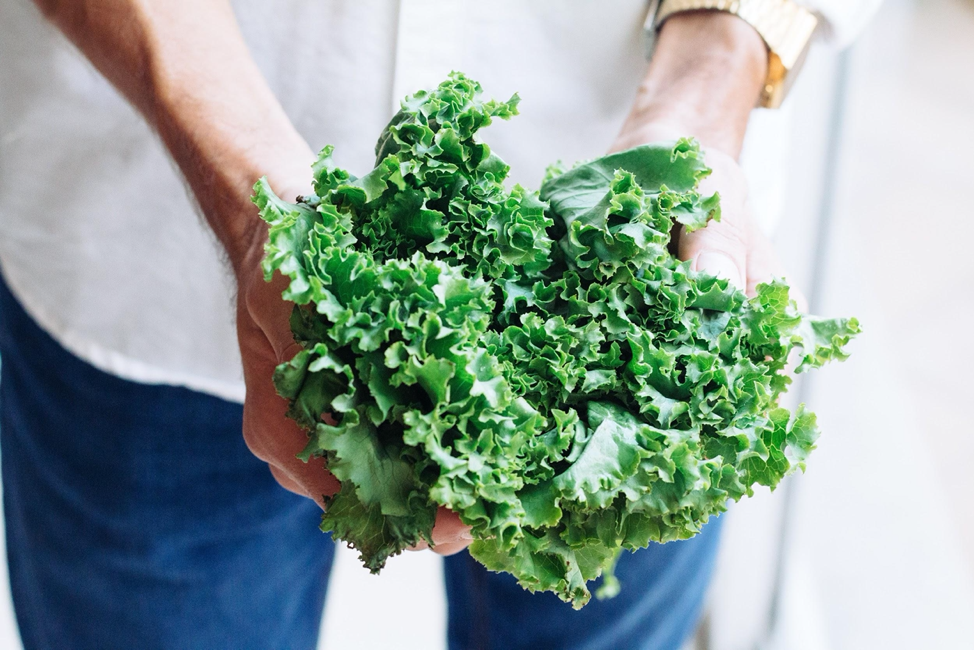
Almonds, pecan, pistachios, and other nuts are good non-dairy sources of calcium. You need calcium for bone health, which will support your efforts in the gym. Consider a vitamin D supplement (or make sure to get plenty of sunlight) for optimal calcium absorption [2].
Kale is an excellent source of vitamin K, which also promotes healthy bones [3][4].
How to get enough plant-based protein for muscle growth
Let’s talk about protein. It contains amino acids, which play a significant role in muscle growth [5]. Here are some of the best plant-based protein sources to help you gain muscle on a vegan diet.
Chickpeas
Also known as garbanzo beans, chickpeas are a nutritional powerhouse. They have been used in middle eastern cuisine for ages. If you’ve ever had hummus, it mostly contains chickpeas.
A 100 gram serving of chickpeas contains around 10 grams of protein. It is also a good source of iron and fiber to promote muscle gain and optimal digestion.
Beans
Kidney beans are a legume native to Central America but used in cuisines all around the world.
Every 100 grams of boiled kidney beans pack around 9 grams of protein. They are rich in fiber, and various vitamins and minerals like folate, iron, manganese, and potassium. Kidney beans also contain vitamin K1, which helps maintain bone mineral density.
Lentils
Lentils are another member of the legume family. They are a staple in India, where a large portion of the population is vegetarian.
Much like kidney beans, boiled lentils pack around 9 grams of protein in every 100-gram serving. They are also a great source of iron, which could be beneficial to you on a vegan diet.
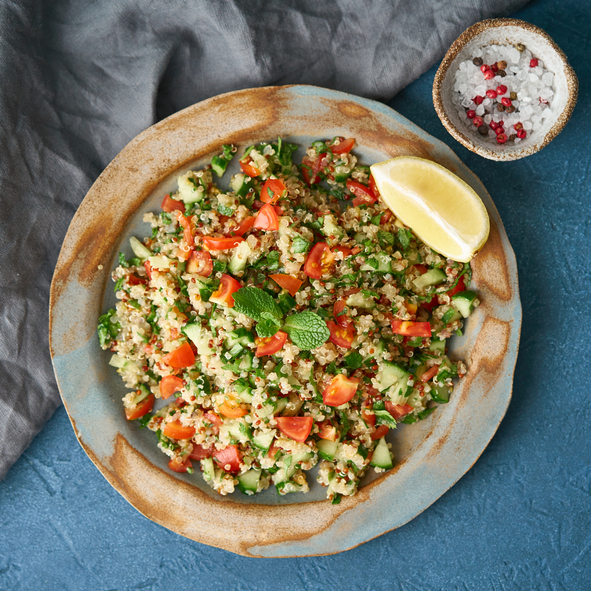
Quinoa
With roots in the Inca civilization, quinoa is a gluten-free seed, and one of the world’s trendiest superfoods today. And for a good reason. It is highly nutritious and a rich source of protein.
One cup of cooked quinoa contains around 8 grams of protein. Quinoa also contains critical nutrients like zinc, manganese, magnesium, folate, and more.
Vegan protein supplements
When you’re on a vegan diet, there might be times when you’ll have to rely on a supplement to get enough protein to support your muscle gain goals.
For example, when you’re traveling, and you don’t have access to your kitchen. Depending on what part of the country you’re visiting, it might be a challenge to find lentils and hummus on a restaurant menu.
When shopping for a vegan protein supplement, look for the following types:
- Pea protein – Pea protein is a complete protein that contains all nine essential amino acids, some of which your body must get from diet. It is a good source of branched-chain amino acids (BCAA), which are crucial for muscle growth [6].
- Brown rice protein – Extracted from brown rice, it is one of the easiest proteins to digest. The higher bioavailability allows your body to use it for muscle growth better.
Besides high-quality protein, you should also make sure your protein supplement is free of harmful ingredients like processed sugars. The vegan protein powders offered by Naked Nutrition included Naked Pea and Naked Rice, both of which have only one ingredient which makes it easy to know exactly what is going into your body.
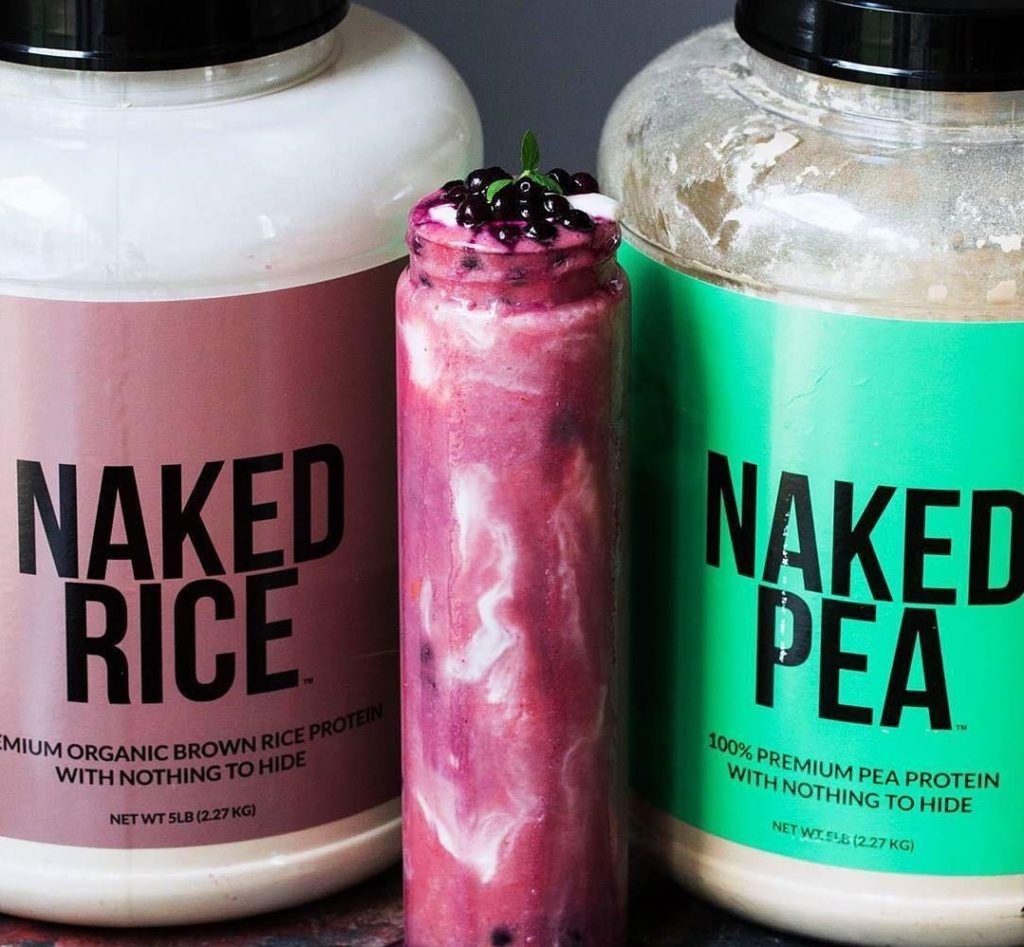
But, because there are no artificial sweeteners or added sugars the final flavor of your vegan vegan recipes and shakes will be determined by the fruits or vegetables you decide to blend with the powder.
Closing thoughts on vegan muscle gain
Gaining muscle is definitely doable on a vegan diet. As with any other diet, you need to assess your goals and plan your fitness and nutrition accordingly. Try to include as many of the plant-based protein sources in your diet as possible. Also, make sure to eat plenty of fruits and vegetables to optimize digestion. If you remain consistent with your diet and fitness routines, you’ll be flexing those new vegan muscles before you know it!
References:
- https://www.ncbi.nlm.nih.gov/pmc/articles/PMC3649719/
- https://www.bones.nih.gov/health-info/bone/bone-health/nutrition/calcium-and-vitamin-d-important-every-age
- https://www.ncbi.nlm.nih.gov/pubmed/11684396
- https://uihc.org/health-topics/warfarin-your-diet-and-vitamin-k-foods
- https://www.ncbi.nlm.nih.gov/pubmed/16365096
- https://www.ncbi.nlm.nih.gov/pubmed/28638350
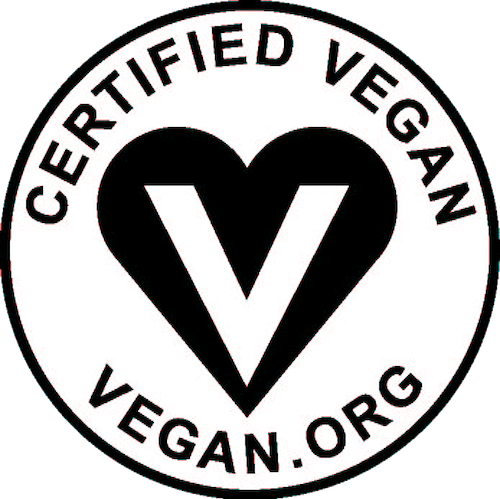

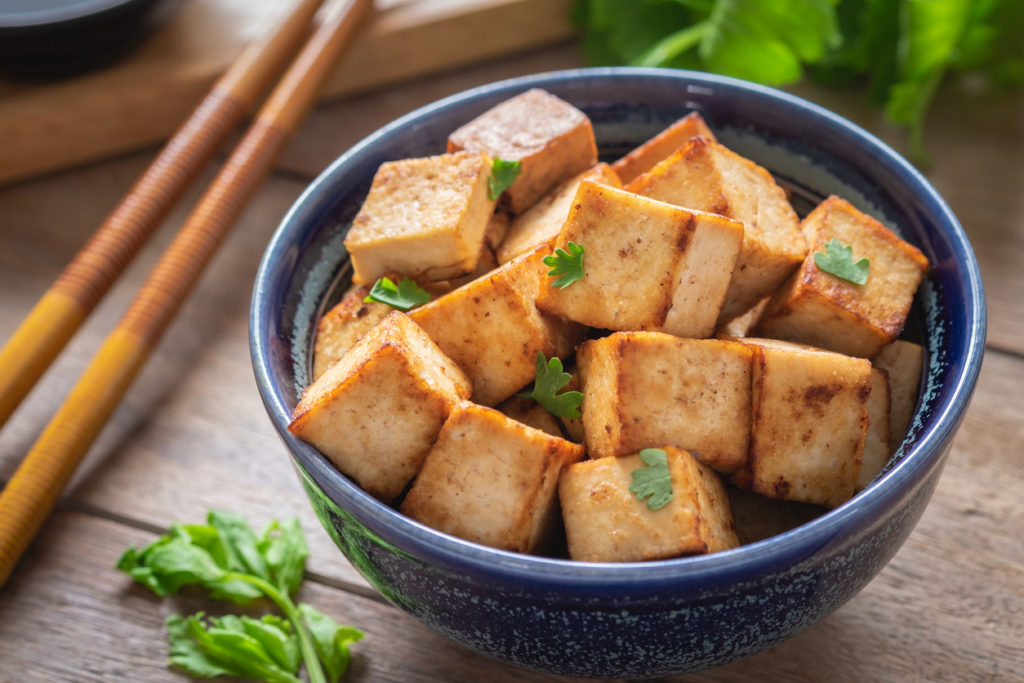

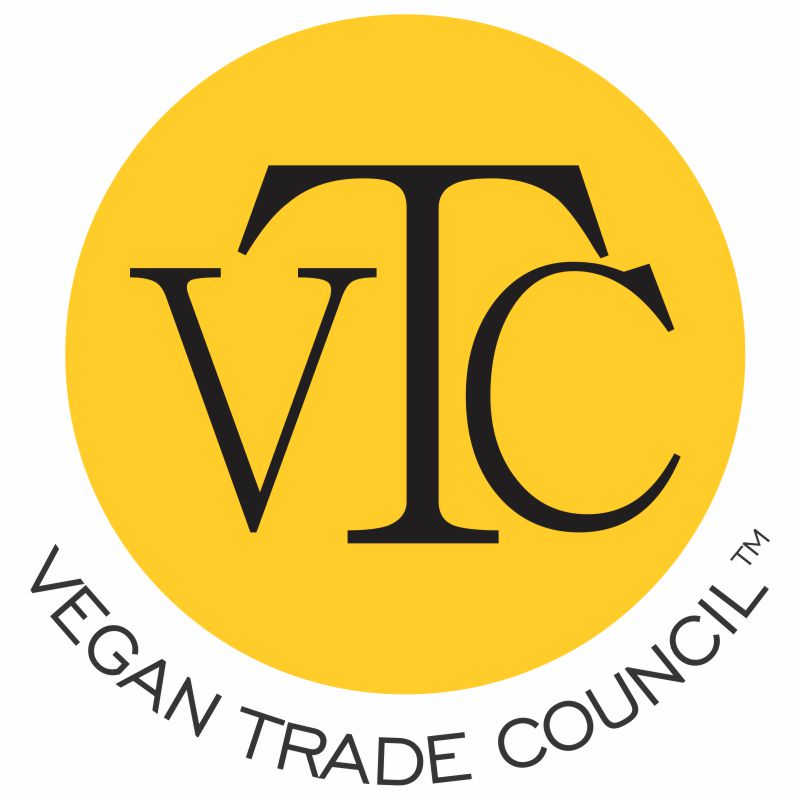
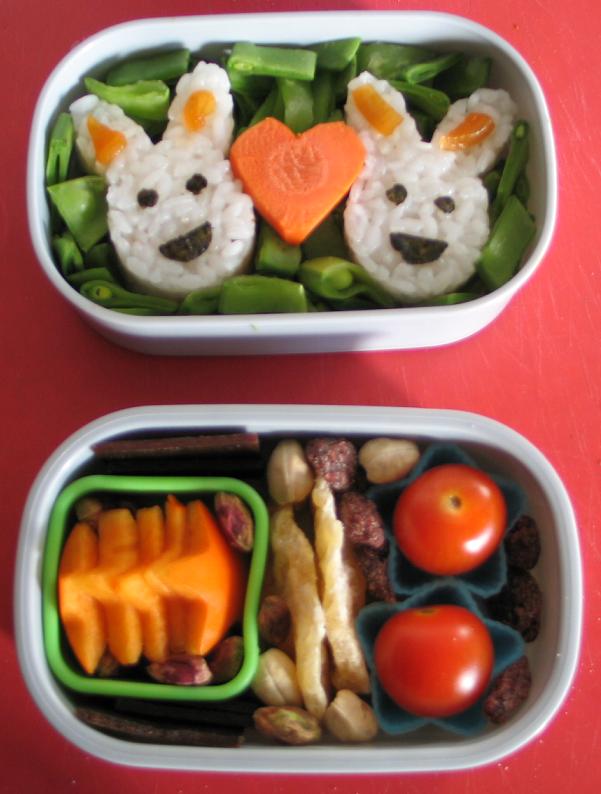
About The Author: Vegan Action
More posts by Vegan Action